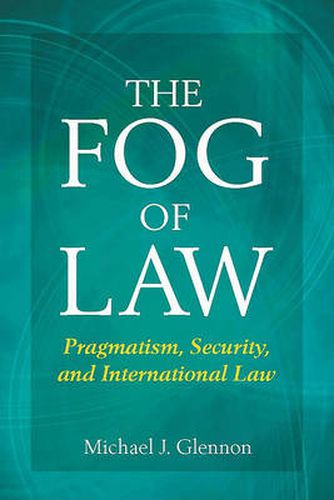Readings Newsletter
Become a Readings Member to make your shopping experience even easier.
Sign in or sign up for free!
You’re not far away from qualifying for FREE standard shipping within Australia
You’ve qualified for FREE standard shipping within Australia
The cart is loading…






When and why are international rules binding? Focusing on questions of state security, The Fog of Law considers the nature of obligation in international law. In so doing, it challenges the prevailing theories of obligation based on natural law or positive law approaches.
Michael J. Glennon argues for a pragmatist approach to international law-that international law has force when enough countries honor it. Using elements of rational choice theory, Glennon describes an international frame of mind that draws on the fluctuating network of incentives and disincentives surrounding international rules to explain states’ uneven compliance. The Fog of Law defends its approach through discussions of key contemporary security issues, including the United Nations’ use of force rules, security assurances, nuclear proliferation, and the new crime of aggression proposed for the International Criminal Court.
$9.00 standard shipping within Australia
FREE standard shipping within Australia for orders over $100.00
Express & International shipping calculated at checkout
When and why are international rules binding? Focusing on questions of state security, The Fog of Law considers the nature of obligation in international law. In so doing, it challenges the prevailing theories of obligation based on natural law or positive law approaches.
Michael J. Glennon argues for a pragmatist approach to international law-that international law has force when enough countries honor it. Using elements of rational choice theory, Glennon describes an international frame of mind that draws on the fluctuating network of incentives and disincentives surrounding international rules to explain states’ uneven compliance. The Fog of Law defends its approach through discussions of key contemporary security issues, including the United Nations’ use of force rules, security assurances, nuclear proliferation, and the new crime of aggression proposed for the International Criminal Court.